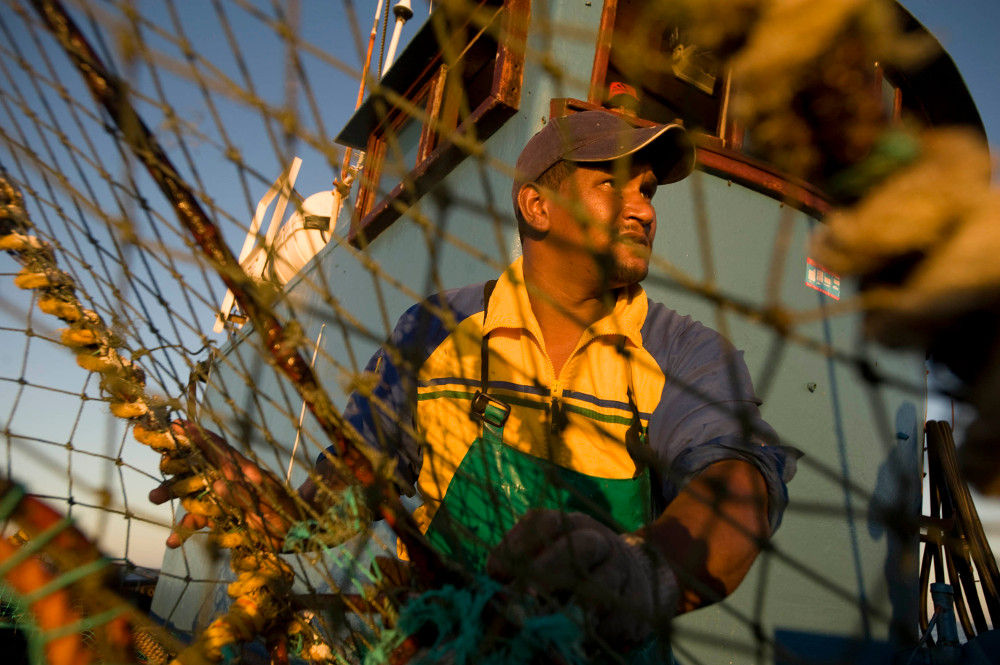Floyd Mayweather stretched his unbeaten string to 45 straight fights when he beat Saul Alvarez
Small-scale fishermen are about to be given collective fishing rights after an amendment Bill was signed into law by President Jacob Zuma this week.
The Marine Living Resources Amendment Bill allows for the allocation of fishing rights to small-scale fishing communities, which will be organised into co-operatives.
The development follows months of dispute in the industry over the flawed fishing rights allocation process, known as Frap 2013, which was finally set aside by Agriculture, Forestry and Fisheries Minister Tina Joemat-Pettersson last week.
Lionel Adendorf, spokesperson for the fisheries department, said the small-scale fishermen have been operating on exemptions that were renewed every year by the fisheries branch, and had not been affected by the debacle.
But the number of exemptions issued in this sector has grown annually, which was highlighted in the legal audit of Frap 2013.
Urgent review
The report, by Harris Nupen Molebatsi Attorneys, urged that the process of granting exemptions and permits and expanding the list of “interim relief fishers” should be urgently reviewed.
Adendorf said pressure has mounted for access to West Coast rock lobster and line fish from additional fishermen seeking exemptions in the Northern and Western Cape, resulting in 2 089 interim relief exemptions being granted this year. The department also issued 6 111 exemptions for the Eastern Cape and KwaZulu-Natal.
“Currently there are approximately 16 communities along the South African coastline benefiting from the interim relief dispensation,” said Adendorf.
“This practice was established in 2007, when the department was compelled through an equality court order to redress the inequalities suffered by the small-scale fishers. The process of interim relief will continue until such time that the department allocates rights in the small-scale sector.”
Although not everyone in the fishing industry favours the co-operative model, Naseegh Jaffer, the director of nongovernmental organisation the Masifundise Development Trust, is behind the move. He said he will particularly welcome the scrapping of the interim relief packages.
“The way interim relief packages were handled by the department was appalling. It was poorly managed, poorly administered and records were not maintained,” said Jaffer. “Certain people also got small-scale fishing rights they should not have got, which was problematic.”
Management plan
Although the department will also be involved in rolling out the co-operatives, Jaffer said that in this programme officials will be guided by policy, which will also contain a management plan.
The amended Bill will bring into force the department’s small-scale fishing policy, which will give fishing communities access to fishing rights.
“The interim relief was based on nothing,” he said. “There was no policy framework or legislation, and many people who were granted exemptions did not qualify for interim relief.”

Collective fishing rights should benefit workers such as this Western Cape rock lobster fisherman. (Paul Botes, M&G)
Small-scale fishermen who were allocated interim packages had to meet certain criteria, including proving they were destitute and did not hold any commercial rights, he said.
Jaffer believes the establishment of community-based legal entities will help to provide poor fishermen with better incomes.
Interim relief
In the interim relief packages, small-scale fishermen were given quotas of 136kg each, compared with the 60 tonnes awarded to some fishing companies.
Jaffer said the poorer fishermen are vulnerable to moneylenders; they pay back their loans in fish and remain in debt.
Under the new policy, the fishing quotas will not be given to individuals but to a legal entity that is a collective.
In terms of the policy, the department proposed that certain areas along the coast should be demarcated and prioritised for small-scale fishermen.
It is expected that the local authorities, the department and scientists will all have shared responsibility for managing the fisheries sector.
Debate
Jaffer said his organisation had been workshopping and debating the plans with fishermen and the government since 2006.
“I will be happy to see interim relief for small-scale fishers stopped altogether,” said Jaffer. “It was only meant to be in place for a year, and it has not got the right management regime around it. It has now been going on for eight years.”
Yet not everyone has welcomed the co-operative model. The chairperson of the South African United Fishing Front, fisherman Pedro Garcia, was stunned to hear that Zuma had signed the Bill. “Oh heavens, help us all,” he said.
Garcia said his organisation is opposed to the introduction of collective forms of ownership when it is entrenched in policy.
Fishermen and communities are not adequately empowered to understand the advantages and disadvantages of this form of ownership, said Garcia. “The small-scale fisheries policy was not an inclusive process and the vast majority of our fishers do not understand its content,” he said.